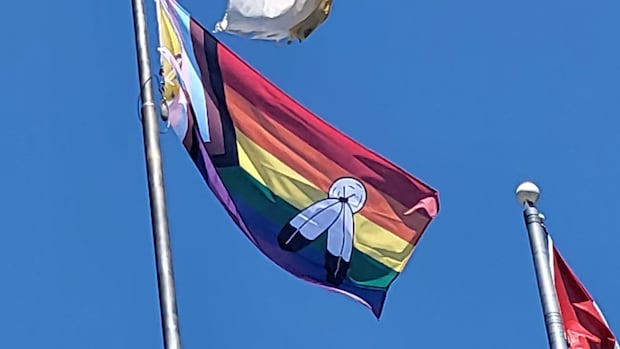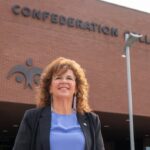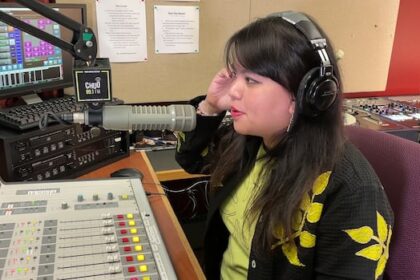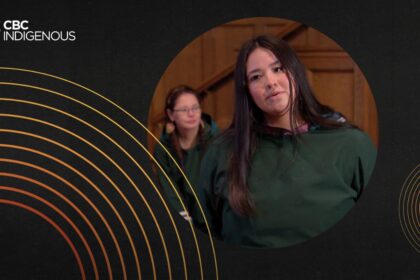IndigenousThe Edmonton 2 Spirit Society is just a couple months away from finishing its emergency and transitional housing for two-spirit people fleeing gender-based violence.24 housing units to be available for 2SLGBTQ+ people in EdmontonNew housing for two-spirit people fleeing gender-based violence in Edmonton is opening soon and operators say it will be the first of its kind. (Submitted by Cambrian College)A new housing program in Edmonton is being called the “first of its kind” for 2SLGBTQ+ people, according to the Edmonton 2 Spirit Society.It is just a couple months away from finishing its new emergency and transitional housing for two-spirit people fleeing gender-based violence. Lena Green, the society’s interim executive director, said when the housing opens it will mark a significant achievement. “It’ll be a place of inclusion and we just don’t see many of those in society today,” they said.Green added that similar housing programs are expected soon in Toronto, Winnipeg and Halifax.Ashleigh Cardinal, the society’s housing manager, said this housing will allow people to figure out what they want from their lives, away from gender-based violence.”We want to provide a space where people can focus on their healing and not worry about where their next meal is coming from, where they’re going to sleep tonight [or] are they going to be attacked for being trans,” Cardinal said.Cardinal, who is two-spirit and a member of the Whitefish Lake First Nation 128 in Alberta, said she has personally experienced some of these issues. “I’ve come from that lived experience of chronic housing instability due to my identity… because of not having a space to connect to how I feel and identify as a person in relation to my culture,” she said. There are 12 spaces for emergency housing for 90 days each, plus an extension if people need more time. Another 12 spaces will offer transitional housing for up to two years. In addition to the housing units, a cultural centre will also be available — another potential first, according to Cardinal.The cultural centre will offer space for creative activities, ceremonies and other learning opportunities for the two-spirit community, Green said. More housing ‘encouraging’Egale Canada, an organization dedicated to research, advocacy and community engagement on behalf of 2SLBGTQ+ people, has found that there is limited research on homelessness among two-spirit people.However research has shown that Indigenous people experience higher levels of homelessness than the general population, and 2SLGBTQ+ people also experience higher levels than the general population. Helen Kennedy, executive director of Egale, said the organization has had its own shelter for 2SLGBTQ+ folks for years, but is unaware of any shelters in North America that are specifically targeted for Indigenous people within the community, making this new one special.She said many times shelters for the general public feel unsafe for people who have marginalized identities, so specific housing for two-spirit people is important. “Not every facility or resource has that kind of expertise to deal with those intersecting identities, so this [new housing] is very encouraging,” Kennedy said. When it comes to transitional housing in Edmonton, Cardinal said there’s often a gendered division of services that doesn’t work for two-spirit individuals, and non-Indigenous gender diverse people also struggle in some mainstream housing services, Kennedy said. Staff may not be trained to support 2SLGBTQ+ people adequately and trans people may be rejected from both male and female shelters, according to Kennedy. When it comes to the issue of gender-based violence, Kennedy said it can manifest in many ways from physical violence to discrimination.”Gender-based violence looks very different for two-spirit people,” Green said.”When a child gets kicked [out of their home] for who they are and they have nowhere to go, that’s gender-based violence.”Green said they hope this housing will allow two-spirit people to reclaim their roles as caregiving members of their communities.”We’re able to be the balance, [to] fit in both the masculine and feminine aspects of community, so we’re always the helpers, the ones that are there to support when needed,” Green said. ABOUT THE AUTHORSamantha Schwientek is a reporter with CBC Indigenous based in amiskwacîwâskahikan (Edmonton). She is a member of the Cayuga nation of the Six Nations of the Grand River, and previously worked at CBC Nova Scotia.
Monday, 22 Dec 2025
Canada – The Illusion
Search
Have an existing account?
Sign In
© 2022 Foxiz News Network. Ruby Design Company. All Rights Reserved.
You May also Like
- More News:
- history
- Standing Bear Network
- John Gonzalez
- ᐊᔭᐦᑊ ayahp — It happened
- Creation
- Beneath the Water
- Olympic gold medal
- Jim Thorpe
- type O blood
- the bringer of life
- Raven
- Wás’agi
- NoiseCat
- 'Sugarcane'
- The rivers still sing
- ᑲᓂᐸᐏᐟ ᒪᐢᑿ
- ᐅᑳᐤ okâw — We remember
- ᐊᓂᓈᐯᐃᐧᐣ aninâpêwin — Truth
- This is what it means to be human.
- Nokoma











